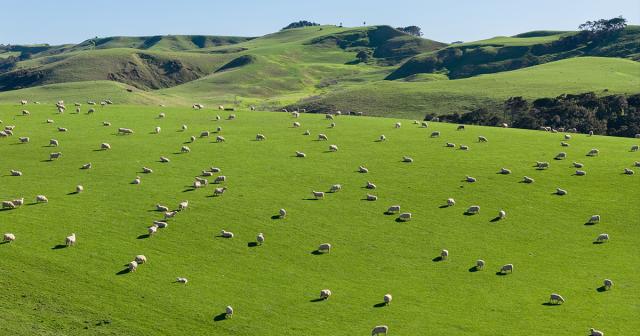Beef + Lamb New Zealand and the Meat Industry Association welcome the certainty that farmers will not face a price on agricultural emissions.

They also say the Government’s announcement of revised methane targets better reflects the science, although the new targets will still be a stretch for the agriculture sector.
B+LNZ Chair Kate Acland says B+LNZ has long argued for New Zealand’s methane targets to be amended in line with the principle of no additional warming.
“The previous targets were arbitrarily based on ranges used in an Intergovernmental Panel on Climate Change (IPCC) report that explicitly stated those ranges should not be used to set national targets.
“The revised targets better reflect the science around the different warming impact of short- and long-lived gases. Methane should only be asked to do what is expected of other gases, which is to achieve no additional warming.
“New Zealand’s red meat is already among the most climate-efficient in the world, thanks to our pasture-based farming systems.
“While our sector has made significant progress on reducing warming emissions, the revised targets, particularly the upper end of the range, will still be very challenging.
“This is by no means letting agriculture off the hook.
“We must avoid the continued unsustainable stock number losses our sector is already facing due to afforestation caused by New Zealand’s ETS settings. Instead, progress towards targets should be made through investments in efficiency, genetic improvement and the use of tools and technologies where it makes sense and if farmers choose to use them.”
Nathan Guy, chairman of the Meat Industry Association, said: “These revised targets are sensible and more achievable. They are grounded in science and strike the right balance between lowering emissions and maintaining food production.
“Importantly, they give our international customers confidence that New Zealand remains committed to doing its part on climate change.”
Acland says the removal of any price on agricultural emissions will be a welcome relief to farmers.
“Emissions from our sector are already coming down – the threat of a price was draining confidence from the rural sector and was just not justified.
“The Government’s announcement is in line with the approach globally. A study released by B+LNZ last year showed virtually all other countries were not intending to price, but to incentivise their farmers to reduce emissions through carbon credits or subsidies.”
She says the Government’s commitment to review New Zealand’s Nationally Determined Contribution (NDC) – the target reported on internationally under the Paris Agreement on climate change – to potentially include split-gas reporting is also heartening.
“If we have a split-gas approach to domestic targets, it makes no sense to bundle our global commitment into an all-gases target. This just creates confusion about how much agriculture actually needs to do.
“In 2022, a paper signed by many of the world’s leading climate scientists supporting a split-gas approach to NDCs, and there is precedent for this approach internationally, with Uruguay having already chosen to use a split-gas approach under its NDC.
“We welcome our government’s commitment to reviewing this and look forward to seeing the next steps.”
Guy adds: “We appreciate the work of Ministers McClay and Watts to land this enduring outcome.
“Our sector is investing heavily, alongside government, in tools and technologies to further reduce emissions across the supply chain.
“To succeed, we need practical policy and regulatory settings that drive productivity, encourage innovation and support the production of sustainable, premium, world-class natural food.”
ENDS
Notes for editors:
- Information on the 2024 global comparison of agricultural emissions reduction policies referred to above available here: https://beeflambnz.com/ag-climate-policies
- The 2022 paper signed by climate scientists can be found here: https://www.nature.com/articles/s41612-021-00226-2
For media queries, email [email protected].